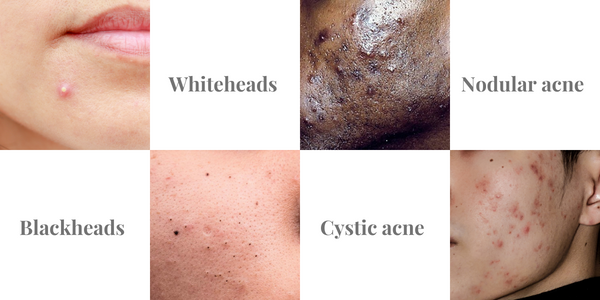Acne & Acne scarring
What is the condition of Skin Acne?
Acne is a common skin condition when hair follicles become clogged with oil, dead skin cells, and bacteria. It typically manifests as pimples, blackheads, whiteheads, and sometimes deeper cysts or nodules on the face, neck, chest, and back.
Acne can be mild, moderate, or severe and may cause scarring or hyperpigmentation in some cases. The condition is most common during puberty but can affect people of all ages.
Hormonal changes, genetics, stress, and certain medications can all contribute to the development of acne.
What are the Causes of Acne?
The exact cause of acne is not fully understood, but several factors can contribute to its development. These include:
- Excess sebum production: Sebum is an oily substance produced by the sebaceous glands in the skin. When there is an overproduction of sebum, it can clog the hair follicles, leading to acne.
- Bacteria: Propionibacterium acnes is a bacteria that usually live on the skin. When there is an overgrowth of this bacteria, it can contribute to the development of acne.
- Inflammation: Inflammation is a response of the immune system to fight off infection or injury. In some cases, inflammation can lead to the development of acne.
- Hormones: Hormonal changes, such as those that occur during puberty, pregnancy, and menstrual cycles, can cause an increase in sebum production, leading to acne.
- Genetics: Acne can run in families, suggesting that genetics can play a role in its development.
- Medications: Some medications, such as corticosteroids and lithium, can contribute to the development of acne.
- Diet: While there is limited research on the link between diet and acne, some studies suggest that a high-glycemic-index diet and dairy products may exacerbate acne in some people.
It is important to note that acne is a multifactorial condition, and the exact cause can vary from person to person.

Scars after Acne
Acne scars result from the skin’s natural healing process after forming a pimple or cyst. When a pimple or cyst develops, the skin’s natural response is to repair the damage by producing collagen. However, if too little or too much collagen is produced, it can lead to scarring.
Factors that can increase the risk of acne scarring include picking or squeezing pimples, severe acne, delayed treatment, and genetics.
Our clinic has several options for Acne & Acne Scars Treatments:
PRP-Platelet Rich Plasma Therapy
Obagi Nu-Derm System


